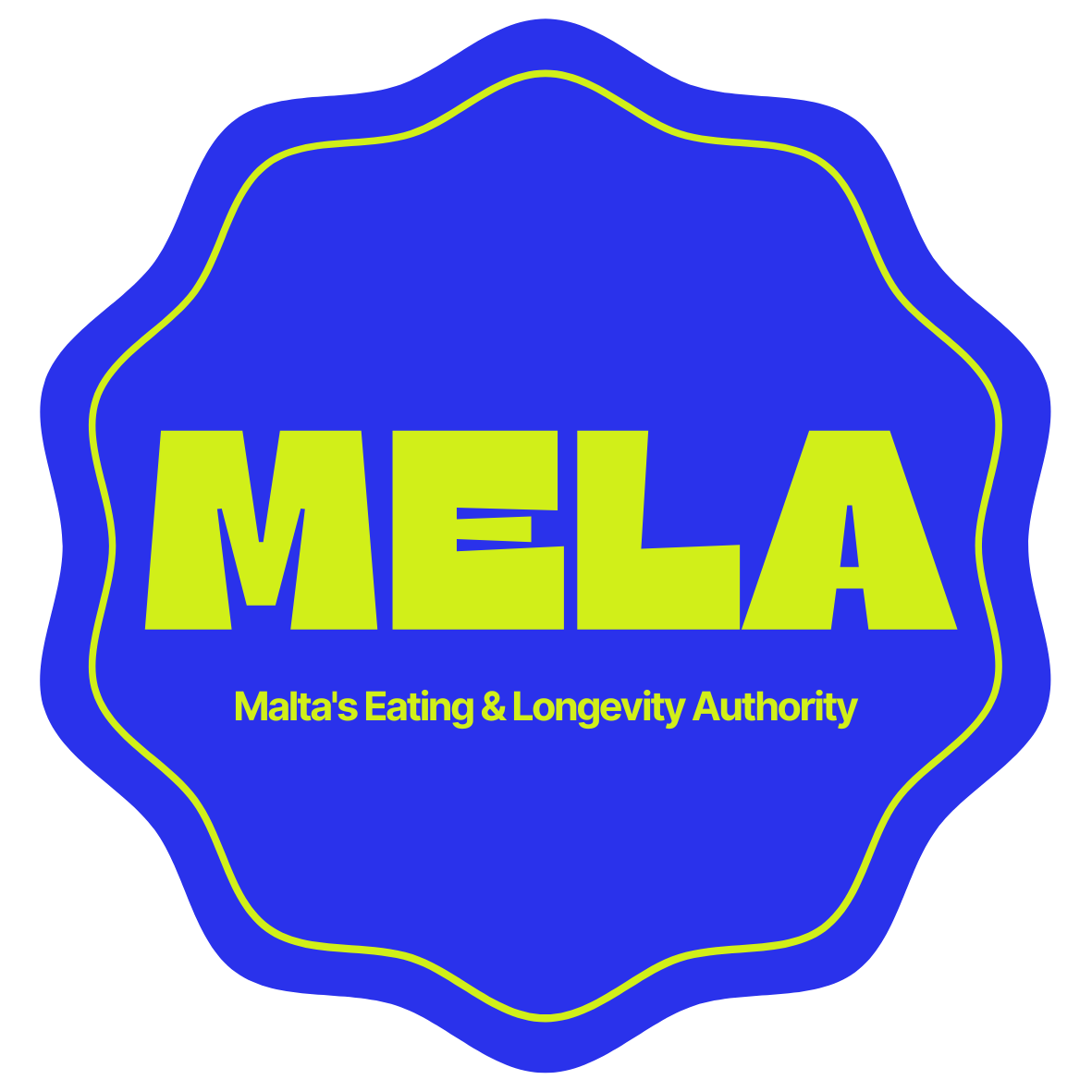Shocking Truth: 40-60% Price Premium on Gluten-Free Certified Products in Malta! In a country where 15% of the population actively seeks gluten-free products, gluten-free certification for food businesses is more than just a stamp of quality, it’s a proven strategy to increase revenue and customer loyalty. If you’re in the Maltese food scene, whether as a restaurant owner, manufacturer, or retailer, this article will break down everything you need to know about gluten-free certification costs, hidden fees, and the economic opportunities it presents.
Is Gluten-Free Certification the Holy Grail for Food Businesses in Malta?
The gluten-free market in Malta is gaining ground rapidly. As of 2026, approximately 2.3% of Maltese residents suffer from celiac disease, while an additional 8-12% follow gluten-free diets for health reasons. This means around 15% of Malta’s population actively seeks gluten-free options, creating an exploding niche for food businesses.
For restaurateurs and manufacturers questioning the ROI, consider this: certified gluten-free products and establishments command 15-20% premium pricing and experience 25% higher satisfaction rates from health-conscious tourists, who collectively form a cornerstone of Malta’s tourism economy. Certified retail products see even higher price markups, ranging between 40–60% compared to uncertified alternatives.
Breaking Down Gluten-Free Certification Costs in Malta
Curious about the price tag? Here’s a detailed breakdown of the typical costs associated with gluten-free certification for small to medium-sized food manufacturers in Malta:
| Cost Component | Estimated Range (€) |
|---|---|
| Initial Certification Fees | €3,500 (on average) |
| Annual Maintenance Fees | €1,200 – €2,500 |
| Facility Inspection | €800 – €1,500 |
| Product Testing (Per Sample) | €150 – €300 |
| Documentation Review | €500 – €800 |
| Ongoing Quarterly Testing | €2,000 – €4,000 annually |
The total annual cost ranges from €2,000 to €8,000, influenced by factors such as facility size, product complexity, and the certifying agency. Certification bodies operating in Malta include international players like the Gluten-Free Certification Organization (GFCO) as well as EU-accredited agencies.
Why Malta’s Gluten-Free Standards Are Stricter Than the EU
In Malta, gluten-free certification requires products to contain less than 10 parts per million (ppm) of gluten, compared to the EU standard of 20 ppm. While this stricter threshold may seem daunting, it works in favor of businesses looking to stand out. Stricter standards translate to greater trust among consumers, particularly those suffering from severe gluten intolerance or celiac disease.
Hidden Costs You Might Overlook
Many businesses underestimate the operational costs related to certification. Beyond the initial and annual certification fees, you’ll need to account for:
- Facility Upgrades: Ensuring no cross-contamination from gluten-containing products.
- Staff Training: Educating employees about safe handling and preparation of gluten-free items.
- Quarterly Product Testing: Ensuring consistent quality, which could add up to €4,000 annually.
- Marketing Expenses: Promoting your certification effectively to attract health-conscious consumers.
Although these costs may seem steep, businesses that cater to the gluten-free market in Malta often see fast ROI through enhanced customer loyalty and higher product margins.
The Tourism Effect: Why Certified Gluten-Free Businesses Thrive in Malta
In tourist hotspots like Malta, certified gluten-free restaurants and hotels drive 15-20% higher customer visits. Health-conscious European tourists, especially those from neighboring Italy and the UK, actively seek dining establishments that ensure gluten-free safety. Additionally, 25% higher customer satisfaction rates mean more positive reviews on platforms like TripAdvisor and Google, which directly translates to increased revenue.
Working towards a certification could unlock premium pricing strategies, particularly in sectors such as:
- Hotels offering gluten-free breakfast buffets
- Fine dining restaurants with gluten-free tasting menus
- Retail outlets providing artisan gluten-free pastries and bread
Want to explore health-conscious dining more deeply? Check out these must-visit places in Mellieha:
- Top 10 Fine Dining Restaurants in Mellieha
- Top 10 Family-Friendly Restaurants in Mellieha
- Top 10 Romantic Restaurants in Mellieha
.png)
Insider Tips for Navigating Certification Successfully
1. Prioritize Inspection Preparation
Malta’s facility inspections, costing €800-€1,500, are rigorous. Ensure your premises are free of contamination to avoid costly repeat inspections.
2. Invest in Reliable Product Testing
Ongoing product testing costs between €2,000-€4,000 annually but prove invaluable in building consumer trust. Use trusted labs for consistent results.
3. Leverage Certification in Marketing
Clearly display your certification logos on menus, packaging, and online platforms. This not only attracts health-conscious consumers but also elevates brand credibility.
Looking for resources? Learn why gluten-free certification is game-changing for your business by referencing the MELA AI Index.
Shocking Stats That Prove the Shift Is Real
- Malta’s gluten-free market penetration reached 15% by September 2026, blending locals and tourists alike.
- Certified gluten-free restaurants and hotels experience 20% premium pricing, especially in tourist-driven areas.
- The global gluten-free market is projected to double to USD 14.13 billion by 2033, driven by a CAGR of 8.7%, as noted in the latest market analysis by Research & Markets.
FAQs About Gluten-Free Certification in Malta
1. Do I Need Gluten-Free Certification For Every Product?
Yes. Each product must be individually tested to meet the <10 ppm gluten standard.
2. How Long Does Certification Take in Malta?
Certification times vary between 8-12 weeks, depending on compliance with EU regulations.
3. Is the €3,500 Initial Certification Fee Worth It?
Absolutely. Certified gluten-free businesses in Malta not only command higher price points but also attract a loyal following of both local consumers and tourists.
.png)
Conclusion: Gluten-Free Certification in Malta, A Smart Investment?
Going gluten-free isn’t just about catering to the latest health fad, it’s a lucrative, sustainable strategy for Maltese food businesses aiming to differentiate themselves from competitors. From unlocking premium menu pricing in fine-dining restaurants to attracting repeat purchases for certified retail products, the benefits of investing in gluten-free certification far outweigh the initial costs.
So, if you’re ready to boost your revenue and reputation, start your gluten-free journey now. Explore resources and industry trends like the ones mentioned here to maximize your success.
Interested in the broader dining landscape of health-conscious venues in Malta? Discover where you can Read about MELA AI Index here for a closer look at how local businesses are revolutionizing the Maltese food scene.

Conclusion
Gluten-free certification in Malta isn’t just a quality assurance measure; it’s a game-changing investment that directly impacts the bottom line of food businesses. Catering to a growing health-conscious market with nearly 15% penetration as of 2026, certified businesses enjoy benefits ranging from premium pricing opportunities to higher customer satisfaction rates, particularly in Malta’s robust tourism economy. With initial costs ranging between €2,000 to €8,000 annually, these certifications not only ensure compliance with Malta’s stringent standards but position businesses as leaders in reliability and customer trust.
The surge in demand for gluten-free products, allied with the global market’s consistent growth, makes it clear: certification is no longer optional for forward-thinking establishments, it’s essential. Certified gluten-free products in retail command up to 60% higher pricing, while restaurants and hotels see a 15-20% increase in visits, creating a strong ROI for those willing to invest.
For business owners ready to expand into this lucrative niche, leveraging certification isn’t the final step, it’s just the beginning. With platforms like MELA AI, you can further amplify your reach. The MELA Index is Malta’s cornerstone for health-inspired dining, spotlighting restaurants and products that prioritize wellness. By adhering to MELA’s health-conscious values and obtaining prestigious recognition through the MELA sticker, your business can signal commitment to both high-quality standards and customer well-being.
Malta is evolving into an epicenter for health-centric dining culture, and the opportunity is ripe to position your establishment as a leader in this transformation. Take the first step today, and let MELA AI guide you toward sustainable growth and unparalleled customer loyalty.
FAQ on Gluten-Free Certification Costs in Malta
Is gluten-free certification necessary for food businesses in Malta?
Yes, gluten-free certification is more than a necessity; it’s a strategic advantage in Malta. With 15% of the population actively seeking gluten-free products due to celiac disease or health-conscious lifestyles, certified establishments gain a competitive edge. Certification ensures product safety, builds consumer trust, and unlocks premium pricing opportunities, allowing food businesses to charge 15–20% more for restaurant items and 40–60% more for retail products. Additionally, certified venues attract health-conscious tourists, driving higher customer loyalty and satisfaction rates.
What are the typical costs associated with gluten-free certification in Malta?
Gluten-free certification costs for food businesses in Malta range from €2,000 to €8,000 annually. This includes initial certification fees (€3,500 on average), annual maintenance fees (€1,200–€2,500), facility inspections (€800–€1,500), and product testing (€150–€300 per sample). Hidden costs like quarterly testing (€2,000–€4,000 annually) and training expenses also add up. While the upfront investment may seem high, businesses often achieve fast ROI by capitalizing on higher pricing margins and consumer trust.
Why are Malta’s gluten-free certification standards stricter than the EU’s?
Malta’s gluten-free standards mandate <10 ppm (parts per million) of gluten content compared to the EU’s 20 ppm threshold. This heightened vigilance enhances consumer confidence, particularly for those with severe gluten intolerance. Stricter standards are particularly advantageous for businesses as they distinguish certified products and venues from competitors in broader EU markets. For health-conscious tourists and locals alike, this added layer of safety fosters loyalty while endorsing Malta’s commitment to exceptional food quality.
How can food businesses market their gluten-free certification effectively?
Certified establishments should prominently display certification logos on menus, packaging, websites, and social media profiles. This branding bolsters credibility and attracts health-conscious consumers, who prioritize safety over price. Additionally, working with platforms like MELA AI can amplify visibility, as their directory showcases businesses catering to health-focused diners. Premium branding packages offered by MELA AI help restaurants stand out while educating prospective consumers about the stringent standards they uphold.
What tourism opportunities does gluten-free certification unlock in Malta?
Malta’s tourism-driven economy benefits significantly from gluten-free certification. Restaurants, hotels, and cafes that cater to gluten-free diners see a 15–20% increase in customer visits, especially from European tourists with dietary restrictions. Establishments providing safe, certified options gain favorable reviews on platforms like TripAdvisor, driving revenue growth. To capitalize on these opportunities, businesses can highlight health-conscious services and premium gluten-free options using the MELA AI framework for targeted tourist engagement.
What are the hidden costs of gluten-free certification that businesses should plan for?
Beyond standard certification fees, hidden costs include facility upgrades to prevent cross-contamination, staff training on gluten-free handling, and ongoing product testing (€2,000–€4,000 annually). Marketing expenses and time investment in inspection preparation further contribute to total costs. However, these investments foster consumer trust and help businesses sustain the pricing premiums associated with certified gluten-free products, making them a worthy consideration for growth-focused establishments.
How can MELA AI help restaurants that specialize in health-conscious dining?
MELA AI is Malta’s premier platform for connecting diners with health-focused venues. Restaurants can apply for the prestigious MELA sticker, which signifies their commitment to offering quality meals that align with wellness goals. MELA AI’s branding packages, including enhanced profiles and premium showcases, amplify visibility while attracting both locals and tourists. Restaurants specializing in gluten-free options, vegan meals, or diabetic-friendly menus benefit from this targeted approach to consumer engagement. Learn more at MELA AI.
How long does gluten-free certification take in Malta?
Obtaining gluten-free certification typically takes 8–12 weeks, depending on compliance and readiness of facilities and documentation. To expedite the process, businesses must ensure all products meet stringent <10 ppm standards, undergo facility inspections, and address potential cross-contamination risks. Early staff training and operational audits help avoid delays, ensuring faster approval from certifying bodies like GFCO or EU-accredited agencies.
Why is gluten-free certification a lucrative investment for small food manufacturers and restaurants?
Small and medium-sized businesses in Malta benefit significantly from gluten-free certification as it allows them to charge higher premiums for certified products. Retail goods can command up to a 60% price markup, while restaurant menus see 15–20% higher pricing for gluten-free options. Moreover, certified venues enjoy 25% higher satisfaction rates among health-conscious clientele, fostering repeat visits and positive word-of-mouth marketing, a key revenue driver in Malta’s tourism economy.
Are there additional platforms to explore gluten-free or health-conscious venues in Malta?
Absolutely! In addition to certification, MELA AI is an ideal resource for discovering or marketing health-conscious establishments. The MELA Index rates restaurants and cafes based on their health-driven initiatives, helping diners identify high-quality options. Uncover Malta’s top dining destinations and learn how your establishment can stand out by joining the directory at MELA AI. From essential listings to premium showcases, MELA promotes businesses prioritizing diet-friendly offerings for a growing health-conscious audience.
Check out another article that you might like:
Blekinge Archipelago: Sweden’s Hidden Maritime Paradise Where Longevity Merges with Coastal Living
About the Author
Violetta Bonenkamp, also known as MeanCEO, is an experienced startup founder with an impressive educational background including an MBA and four other higher education degrees. She has over 20 years of work experience across multiple countries, including 5 years as a solopreneur and serial entrepreneur. Throughout her startup experience she has applied for multiple startup grants at the EU level, in the Netherlands and Malta, and her startups received quite a few of those. She’s been living, studying and working in many countries around the globe and her extensive multicultural experience has influenced her immensely.
Violetta is a true multiple specialist who has built expertise in Linguistics, Education, Business Management, Blockchain, Entrepreneurship, Intellectual Property, Game Design, AI, SEO, Digital Marketing, cyber security and zero code automations. Her extensive educational journey includes a Master of Arts in Linguistics and Education, an Advanced Master in Linguistics from Belgium (2006-2007), an MBA from Blekinge Institute of Technology in Sweden (2006-2008), and an Erasmus Mundus joint program European Master of Higher Education from universities in Norway, Finland, and Portugal (2009).
She is the founder of Fe/male Switch, a startup game that encourages women to enter STEM fields, and also leads CADChain, and multiple other projects like the Directory of 1,000 Startup Cities with a proprietary MeanCEO Index that ranks cities for female entrepreneurs. Violetta created the “gamepreneurship” methodology, which forms the scientific basis of her startup game. She also builds a lot of SEO tools for startups. Her achievements include being named one of the top 100 women in Europe by EU Startups in 2022 and being nominated for Impact Person of the year at the Dutch Blockchain Week. She is an author with Sifted and a speaker at different Universities. Recently she published a book on Startup Idea Validation the right way: from zero to first customers and beyond, launched a Directory of 1,500+ websites for startups to list themselves in order to gain traction and build backlinks and is building MELA AI to help local restaurants in Malta get more visibility online.
For the past several years Violetta has been living between the Netherlands and Malta, while also regularly traveling to different destinations around the globe, usually due to her entrepreneurial activities. This has led her to start writing about different locations and amenities from the POV of an entrepreneur. Here’s her recent article about the best hotels in Italy to work from.



